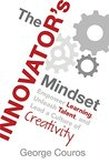It's an all-too-common scenario. The people who deal with the customers don't have the power to help them. But the representatives' inability to resolve your issue isn't their fault. It's a leadership problem. In those companies, the "customer service representative" isn't trusted to do the right thing.

If the weapon is stripped from the soldier on the front line, the line will not hold.
Author George Couros expresses this well in his book, The Innovator's Mindset. Quoting Stephen Covey, he writes:
When trust is low, in a company or in a relationship, it places a hidden "tax" on every transaction: every communication, every interaction, every strategy, every decision is taxed, bringing speed down and sending costs up. My experience is that significant distrust doubles the cost of doing business and triples the time it takes to get things done.
Additionally, the word equity is finally getting a workout. It is quite tempting for administrators, legislatures, and even tip-of-the-spear educators to lower opportunities for some schools/classrooms/students in an effort to make everything equal. The expectations, materials, and training can quickly become less than tolerable. Instead, we absolutely must fight for equity - but at the highest level.
Another concern often voiced in response to innovative initiatives is that the new program or approach might create superior learning opportunities - opportunities that aren't offered in another learning environment. If what's best for learners is our primary concern, equity of opportunities will be created at the highest levels, not the lowest.
Staff professional development can provide opportunities for creating a shared understanding of the group as a whole, but we also have to remember that the whole is made up of individuals. I have been in schools where everyone received the same book to read and learn from together. This standardized approach assumes the educator hasn't already read the book, the content is relevant to everyone, and everyone has the same needs to move forward. That's a lot of assumptions.
I must admit, it's refreshing to discover a book that speaks to the importance of relationships between administrators and teachers, rather than the same old focus on teacher-student relationships. In this way Couros throws a bone to teachers, who are so often disregarded as having needs of their own.
Fifty years ago, relationships were the most important thing in our schools, and fifty years from now, it will be no different.







































